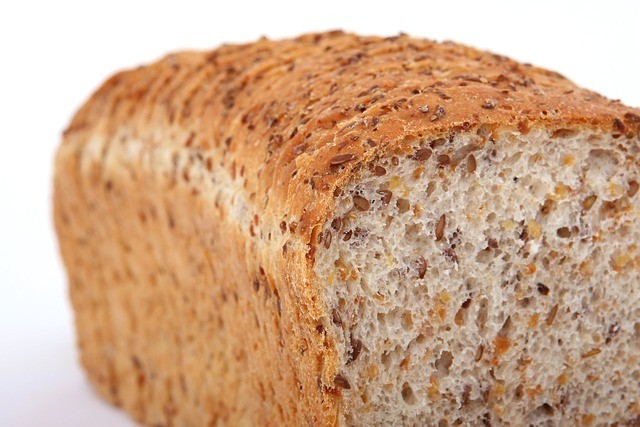Wheat bread, particularly whole wheat bread, is often considered a nutritional powerhouse due to its numerous health benefits. Here are some of the benefits of consuming wheat bread:
1. Rich in Nutrients:
Whole wheat bread is made from whole wheat flour, which retains the nutrient-rich bran and germ layers of the wheat kernel. This makes it a good source of essential nutrients such as dietary fiber, B vitamins (including B6 and folate), minerals (such as iron, magnesium, and zinc), and antioxidants.

2. High in Dietary Fiber:
Wheat bread, especially whole wheat bread, is rich in dietary fiber, both soluble and insoluble. Fiber is important for digestive health, as it aids in regular bowel movements, promotes a feeling of fullness, and can help manage blood sugar levels.
3. Heart Health:
The fiber, vitamins, and minerals in wheat bread can contribute to heart health. The soluble fiber helps lower cholesterol levels by binding to cholesterol in the digestive tract and preventing its absorption.
4. Weight Management:
The high fiber content in wheat bread can help with weight management by promoting satiety and reducing overeating. Fiber slows down digestion and keeps you feeling full for longer, which can aid in portion control.
5. Blood Sugar Control:
Whole wheat bread has a lower glycemic index compared to refined white bread. This means it causes a slower rise in blood sugar levels, making it a better choice for those trying to manage their blood sugar levels.
6. Antioxidants:
Whole wheat contains antioxidants such as phenolic acids and flavonoids. These compounds have been linked to reduced risk of chronic diseases, including certain cancers and cardiovascular diseases.
7. Energy Source:
The complex carbohydrates in wheat bread provide a steady source of energy. Whole wheat bread releases glucose into the bloodstream more slowly, providing sustained energy levels throughout the day.
8. Digestive Health:
The dietary fiber in wheat bread supports healthy digestion by promoting regular bowel movements and preventing constipation. It also supports the growth of beneficial gut bacteria.
9. Nutrient Density:
Compared to refined white bread, whole wheat bread is more nutrient-dense. It contains higher levels of vitamins, minerals, and other beneficial compounds that are stripped away during the refining process of white bread.
10. Reduced Risk of Chronic Diseases:
A diet rich in whole grains, including whole wheat bread, has been associated with a reduced risk of chronic diseases such as type 2 diabetes, cardiovascular diseases, and certain cancers.
When choosing wheat bread, it’s important to read labels. Look for bread that lists whole wheat or whole grain as the first ingredient. Some products labeled as “wheat bread” might still contain mostly refined flour.
Incorporating whole wheat bread into a balanced diet along with a variety of other nutrient-rich foods can contribute to overall health and well-being.









